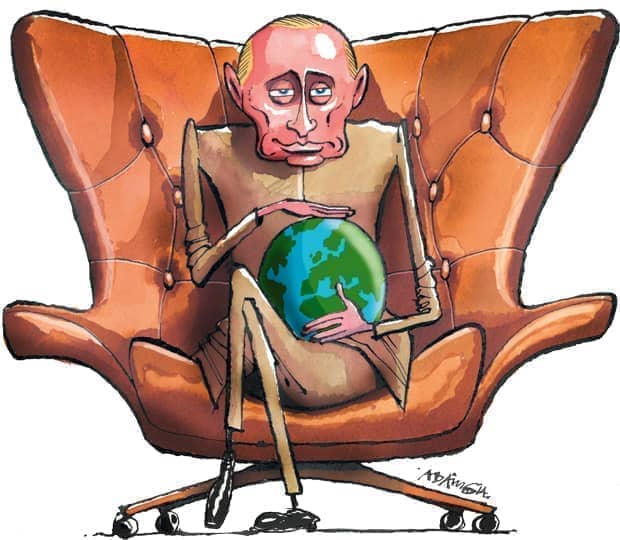Joe Biden received a lot of flak for suggesting that Nato might be divided about what to do next if Vladimir Putin limits Russia’s aggression against Ukraine to a ‘minor incursion’. While clumsy and ill-advised, the comments were what Americans call a ‘Kingsley Gaffe’ – a situation when a politician accidentally tells the truth.
After all, Nato does have a problem, and has had it for a while. Back in 2019, Emmanuel Macron raised eyebrows for claiming that Nato was becoming brain dead due to waning American interest in Europe. The first year of Biden’s mandate as president showcased a host of policy decisions that revealed that Europe was an afterthought for Americans – from the Afghanistan withdrawal, to Aukus, and the ongoing talks with Russia in Geneva, conducted over the heads of Europeans.
The issue here is neither Trump nor Biden. Rather, it is the fact that the United States does not have and ‘won’t have a military big enough to increase commitments in Europe and have a chance of restoring (US) edge in Asia against China,’ as Elbridge Colby – the architect of the 2018 National Defense Strategy, dominated heavily by China – put it recently.
Germany is determined to have its cake and eat it too
‘We must prioritise,’ he added, ‘either we’ll shift gracefully toward Asia, giving Europe a soft landing (maybe too late for that). Or there’ll be a shock in Asia and we will have an East of Suez moment, when we’ll have to dramatically cut other commitments to prioritise Asia.’
The current stand-off with Russia is only tangentially related to Ukraine. No one is suggesting that Nato should go into a shooting war with Russia over Ukraine, nor that Ukraine or Georgia should be joining the alliance anytime soon. The real question is whether Russia ought to have a veto over Nato’s future enlargements to the east and its military deployments on the alliance’s eastern flank.
And Americans cannot care about either of those two questions more than Europeans themselves. After all, it is Europe, not the United States, that stands to be affected by any instability or Russian encroachments in the post-Soviet space or the Balkans. True, a ‘Europe whole and free’ is in America’s interest at some level, but not without qualifications or at any cost to the United States.
The British seem to understand that, as illustrated by the excellent article by the Defence Secretary Ben Wallace and the UK’s military aid to besieged Ukraine. So do the French who are responding to Russian bullying by boosting their military presence in Romania. Eastern European countries have a firm grasp of the stakes too, but Poland or the Baltic states would not be in a position to defend themselves against Russia even if they doubled or tripled their defence spending.
But taken as a whole, Europe’s response is sorely lacking. Much of the European discussion takes places at a high level of abstraction, surrounded around concepts of ‘strategic autonomy’ and European ‘sovereignty’. It’s as if the EU were an actual federal state with resources and military assets under the control of its central government. Some of those in Brussels appear to think that cooperation of countries outside of the EU, such as the UK or Norway, are not critical to the continent’s security.
Worse than the chest puffing is the German question. Europe’s reluctant hegemon is determined to have its cake and eat it too. Berlin makes highfalutin pronouncements about rules-based liberal order and multilateralism while also pursuing egotistical (and short-sighted) business goals such as Nord Stream 2. The project, by the way, should not be ‘dragged’ into the conflict over Ukraine, as the country’s defence minister put it recently. Influential voices, particularly on the Republican side, are calling for US sanctions against the pipeline, which circumvents the traditional role played by Ukraine and other Eastern European countries in natural gas transit. In a way, those efforts miss the point: the United States cannot care about the future of Eastern Europe more than Germans themselves and their partners in the EU.
There has been a change in European policies toward Russia, particularly after the downing of Malaysia Airlines flight 17 in the summer of 2014. Given the puny response that Russian sabre-rattling is receiving this time around – and given the sorry state of Europe’s militaries – that change has not gone anywhere near where it should have. This is becoming particularly apparent in light of the diminished role the United States is now likely to play in Europe. One can only hope that Europeans, particularly the Germans, can catch up without being forced into doing so by a major military conflagration at their doorstep.






Comments